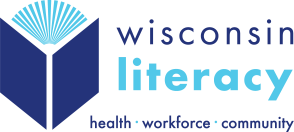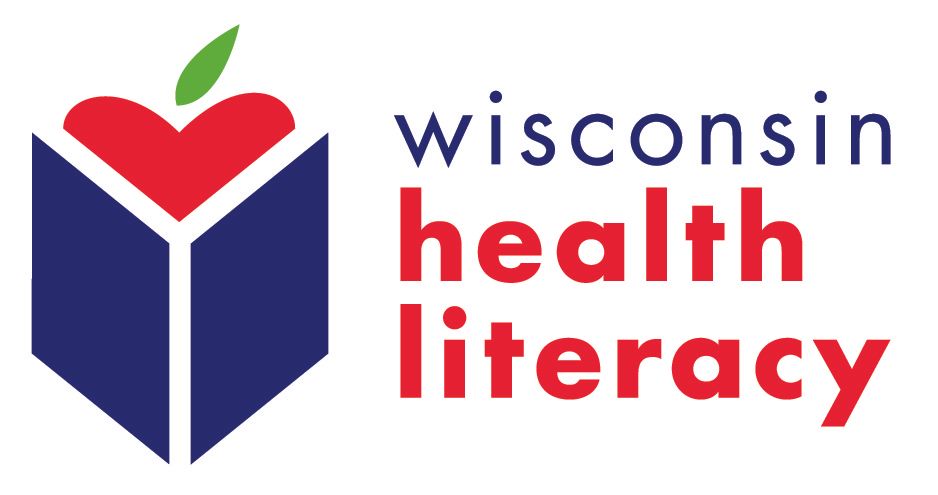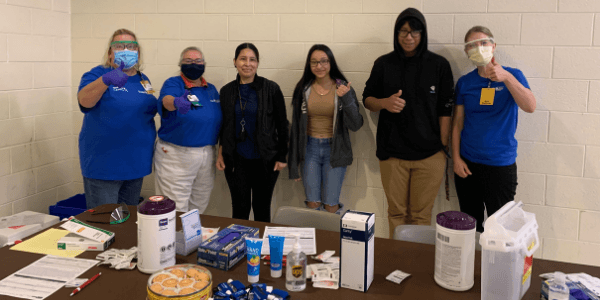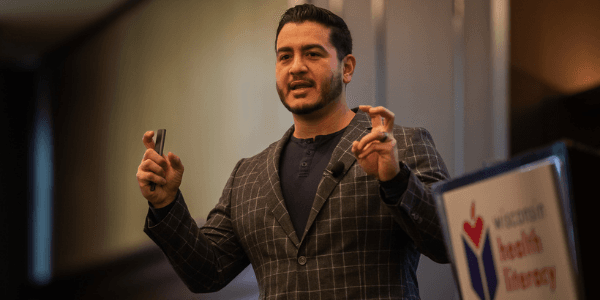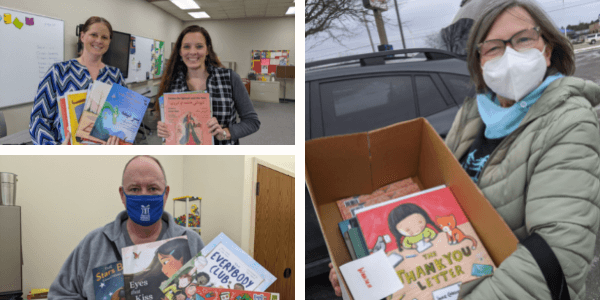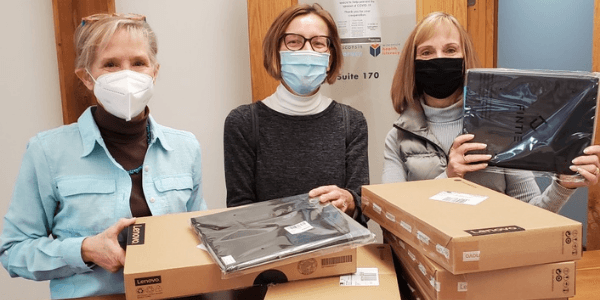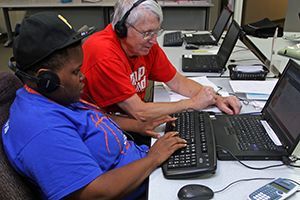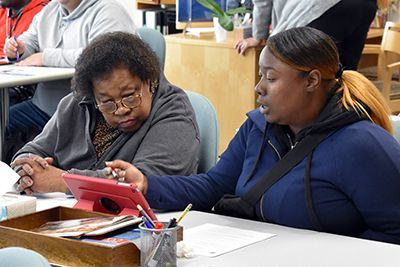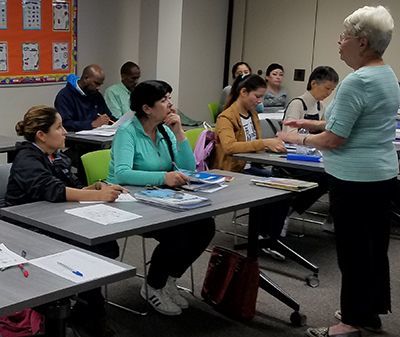Your support makes our work possible. Learn how strengthening literacy statewide changes lives and moves Wisconsin forward.
Want to stay up to date? Get our news directly in your inbox.
Thanks to the Wisconsin Department of Children and Families, we worked with literacy agency members to engage in Workplace Literacy and Employment Skills activities for Temporary Assistance for Needy Families (TANF)-eligible individuals, specifically refugees. Through a series of networking calls and professional development, we are building capacity for workplace literacy.
Wisconsin Health Literacy, a division of Wisconsin Literacy, wants to make sure that everyone has access to accurate and reliable information about COVID and the COVID vaccines. Thanks to support from the Wisconsin Department of Health Services, we are working with community-based organizations, tribal governments, and other nonprofit organizations to reach underserved populations as trusted members of the community.
The Wisconsin Health Literacy Summit Embracing Health Literacy in the New Normal: Digital Communications, Telehealth, Health Insurance, and Health Equity and the Vaccine Community Outreach Pre-Summit took place on April 4 -6th, 2022 in Madison, WI. Presenters encouraged building trust and listening deeply to patients and attendees energized each other for the hard work ahead.
First Lady Kathy Evers and the Wisconsin Department of Children and Families provided a wonderful gift of social and emotional learning books for Afghan refugee children resettling in Wisconsin. Wisconsin Literacy staff delivered 170 books to 8 literacy agencies in resettlement locations throughout Wisconsin.
Ashleigh Henrichs, Wisconsin Literacy’s Associate Director, has been selected for the 2022 State Advocate for Adult Education Fellowship (SAAEF) a “hands-on, yearlong advocacy training program” created by the Coalition on Adult Basic Education (COABE). “I’m excited for this opportunity,” shared Ashleigh. “My goals are to increase awareness of the importance of adult education and to translate that awareness into increased funding and areas for new growth for Wisconsin Literacy members.”
Over the past seven years, Wisconsin Health Literacy (WHL) and partners have been successfully working with pharmacies to redesign prescription labels using evidence-based standards. WHL and project partners will work with Wisconsin health systems to adopt changes in the electronic health record software that will make the use of evidence-based prescription labels and directions for use the default choice for prescribers.
Because of the COVID-19 pandemic, digital skills are required for access to health, employment, retail, and educational opportunities. Thanks to your support, Wisconsin Literacy will team up with the Department of Workforce Development (DWD) to provide more digital skills training to literacy providers and other Workforce Innovation Opportunities Act (WIOA) partners serving adults with low literacy, numeracy, and digital literacy skills.
Thanks to the support of Bader Philanthropies, Inc., Wisconsin Health Literacy (WHL) staff facilitated trainings and expanded the number of Alzheimer’s and Early Dementia workshops to new county and community partners that work with aging populations to align health literacy approaches to caregivers.
The COVID-19 pandemic has highlighted the widening digital divide and the increasing concern with accessing credible health information.
Based on the success of Wisconsin Health Literacy’s (WHL) Health Online: Finding Information You Can Trust, Network of the National Library of Medicine (NNLM) will work with WHL to develop videos, program guides, and virtual learning series to address the digital divide nationally.
2020 has taught us that during uncertainty, unrest, and dark days, we still can rise.
I have witnessed this in the work of our Wisconsin Literacy and Wisconsin Health Literacy team. We decreased our state’s persistent digital divide among populations that previously had limited experience with online platforms. Our Heath Literacy division immediately created easy-to-read COVID resources and took its Health Online community trainings to a whole new level.
For adult students new to this country or who read at a 4th grade reading level, jumping into a technical college campus can be overwhelming. But collaborations like the one between Literacy Green Bay (LGB) and Northeast Wisconsin Technical College (NWTC) ease those students into a technical college career pathway.
Thanks to you, literacy programs statewide can continue valuable instruction. Regional Literacy Consultants and Community Coordinators provided 20 capacity building opportunities for literacy programs in 11 weeks and sent GED and adult basic education books, other materials, and even computers directly to learners and program staff.
Taking what we learned during focus groups and what we know about keeping communities safe during COVID-19, we shifted program delivery and will serve even more justice-involved adults with a greater variety of materials than we had originally planned.
Together, we helped adults of all literacy levels understand COVID-19 related restrictions and how to keep themselves and their communities safe.
Previous Literacy Now Newsletters:
Wisconsin Literacy Update Summer 2016
Wisconsin Literacy Update Winter 2016
